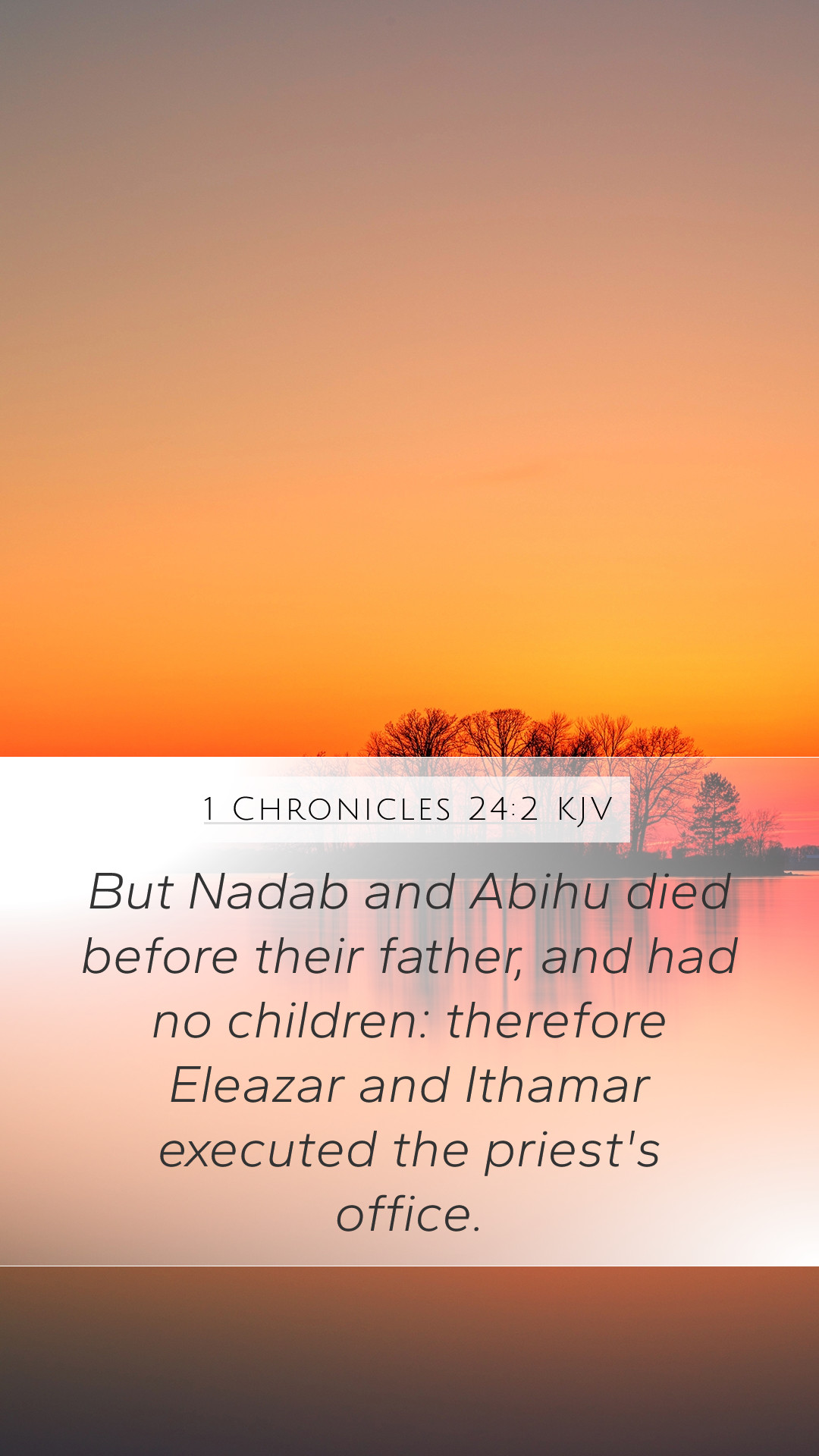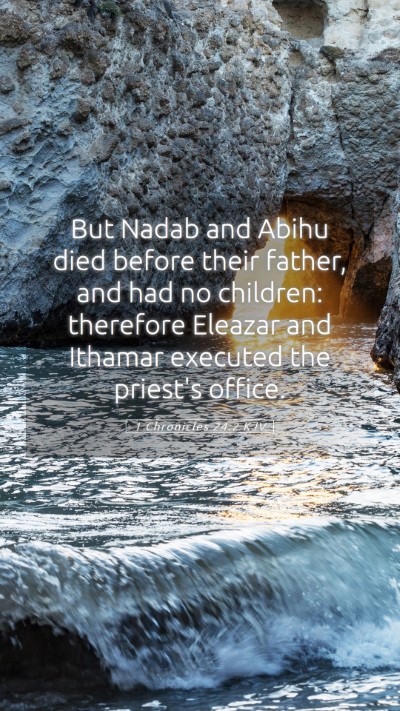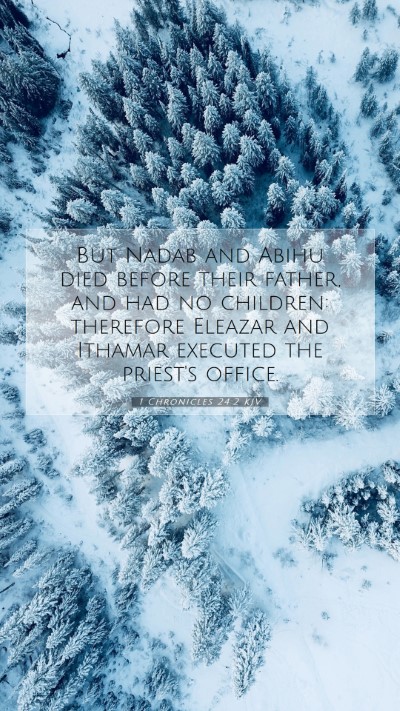Understanding 1 Chronicles 24:2: A Comprehensive Analysis
Bible Verse: 1 Chronicles 24:2
“And David divided them into courses among the sons of Levi: namely, Gershon, Kohath, and Merari.”
This verse is part of a larger narrative that deals with the organization of the Levitical priesthood under King David's reign. It illustrates the importance of structure and organization in religious leadership and worship practices.
Overview of Scripture Interpretation
The verse indicates the division of work among the Levitical families: Gershon, Kohath, and Merari. This division was crucial for the smooth operation of temple worship and the responsibilities associated with it.
Insights from Public Domain Commentaries
Matthew Henry's Commentary
Henry emphasizes the wisdom of David in organizing the Levites into distinct courses to ensure that the work of the house of God is carried out efficiently. He notes the importance of order in public worship and how it reflects God's character.
Albert Barnes' Notes
Barnes highlights that David’s decision to divide the Levitical labor signifies a desire for harmony and cooperation among the Levites. He argues that such divisions enable an effective and systematic approach to service, allowing different houses to take turns in their duties.
Adam Clarke's Commentary
Clarke reflects on the historical context of the divisions among the Levites. He explains that this organization was a practical manner to manage the growing responsibilities of the Levites, suggesting that this was a necessary precedent established by David for future generations.
Biblical Exegesis and Theological Implications
This verse is not merely logistical; it carries deeper theological implications regarding leadership, service, and the communal aspect of worship. Each division suggests that worship is a collective effort, requiring collaboration among different individuals and families.
Significance of Organization in Worship
In the broader context of Scripture, this organization underscores the significance of orderliness in the worship of God. Just as David structured the service of the Levites, modern-day believers are called to approach worship with intentional organization, which can lead to a more profound connection with God.
Application to Daily Life
Understanding this verse encourages believers to appreciate the role of organization in their faith communities. It suggests that every member has a part to play, stressing the idea of shared responsibility in worship and service within the church.
Cross References
- Exodus 6:16-20 - The lineage and significance of the Levites.
- 1 Chronicles 23:1-6 - Further details on the division of the Levites and their duties.
- Hebrews 7:11-14 - Discusses the priesthood and its implications in the New Testament context.
Further Study Topics
For those interested, discussing this passage in Bible study groups could lead to enriching dialogues about:
- The role of the priesthood in both Old and New Testament
- How to apply orderly worship practices in contemporary settings
- The significance of recognizing and utilizing spiritual gifts within the church
Final Thoughts
In conclusion, 1 Chronicles 24:2 serves as a reminder of the importance of structure and shared responsibility in worship. By reflecting on David's organization of the Levites, believers today can find valuable lessons in teamwork, service, and the dedication needed in their local church settings. This verse and its interpretations can enhance our Bible study insights and provide clarity on how God desires us to approach worship as a community.


